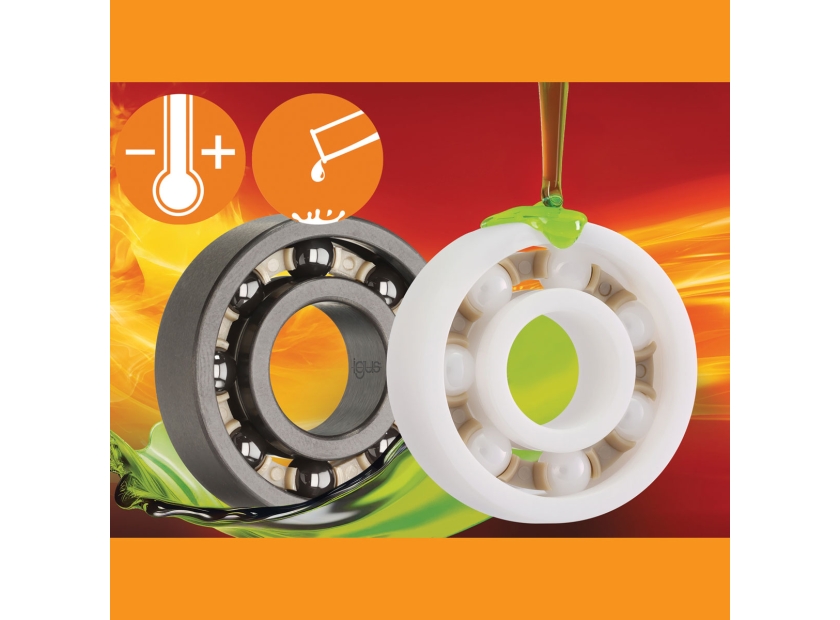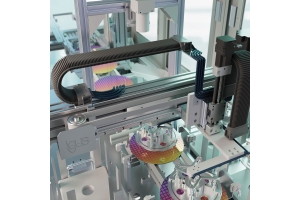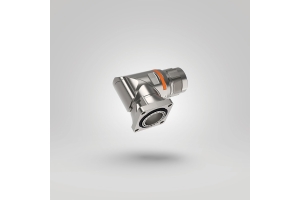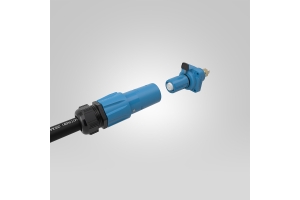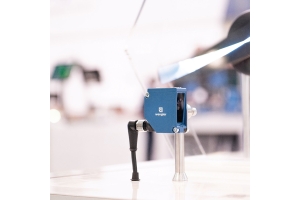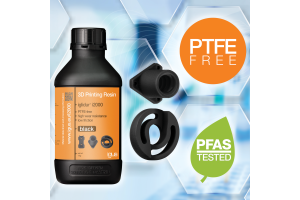65 times more wear
65 times more wear-resistant: igus develops ball bearings for extreme chemical loads
Technical ceramics and high-performance plastic ensure maximum service life without maintenance
igus has developed two new chemical-resistant and particularly durable xiros ball bearings especially for use in contact with chemicals. They are 65 times more wear-resistant than ball bearings made entirely of the plastic polyether ether ketone (PEEK). This durability is due to a combination of races and balls made of technical ceramics and a PEEK-based igus cage. Designers in the chemical and process industries, aerospace and the automotive sector, among others, benefit from their long service life.
Whenever ball bearings come into contact with chemicals, there is a risk of corrosion and premature failure, be it in agitators in the process industry, engine gearboxes, aircraft turbines or analysers in medical laboratories. "Classic metal ball bearings in particular are susceptible to corrosion under these conditions. Even ball bearings made of PEEK quickly reach their technical limits in applications when they are subjected to chemicals combined with higher speeds and loads, especially when a long service life is required," says Marcus Semsroth, Head of the xiros Polymer Ball Bearing Business Unit at igus. "We want to offer design engineers greater safety and increase the service life and efficiency of their applications. Therefore, we have developed new ceramic ball bearings from the xiros series. They withstand chemicals and are considerably more durable than standard PEEK bearings." The bearings are now available in three DIN dimensions with inner diameters of 8, 10 and 12mm. Other dimensions are available upon request.
Laboratory tests prove high wear resistance
The reason for the new bearings' durability is a special combination of materials: the inner and outer races and the balls are made of technical ceramics. The cage that holds the balls in position is a PEEK-based material developed by igus. "Tests in our in-house laboratory have shown that this combination of materials makes the ball bearings 65 times more wear-resistant than alternatives that consist entirely of PEEK," explains Semsroth. The new ceramic bearings are also around 40% lighter than metal bearings, which improves energy efficiency, especially at high speeds. In addition, they are maintenance-free as they do not require lubricants for their low-friction dry operation. The ceramic bearings are neither magnetic nor electrically conductive, which is another advantage for the safety of many applications, such as electric motors.
Specifically developed for high speeds
igus offers two versions of the ceramic bearings: both are suitable for applications where high temperatures and high speeds are crucial, such as aircraft engines, gearboxes and medical devices. The bearings are particularly resistant to chemicals in alkaline environments. The bearings made of white zirconium oxide are tougher and more resistant to corrosion. They are also more cost-effective than the black version made of silicon nitride, which is slightly more brittle. The silicon nitride ball bearing, on the other hand, offers particularly high thermal stability. This makes it suitable for applications involving superheated steam or fast temperature fluctuations. "The silicon nitride variant is therefore the preferred choice for industries such as aerospace. Zirconium oxide, in turn, is ideal for chemical plants, medical devices or the food industry," says Semsroth, summarising the advantages of the two new ceramic ball bearings.

